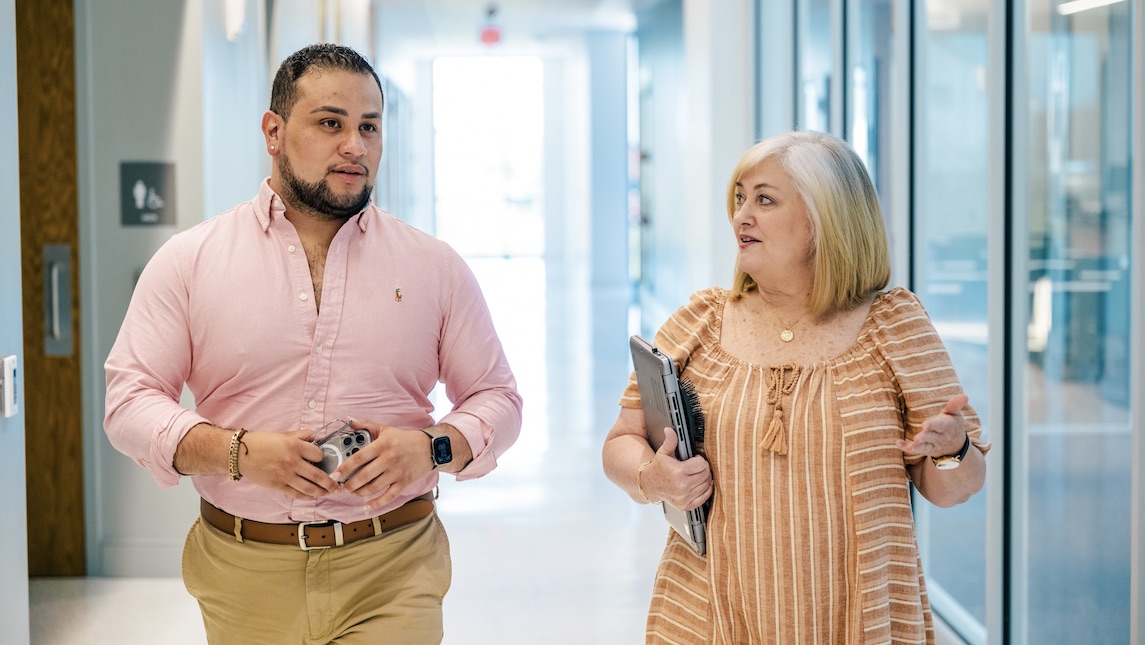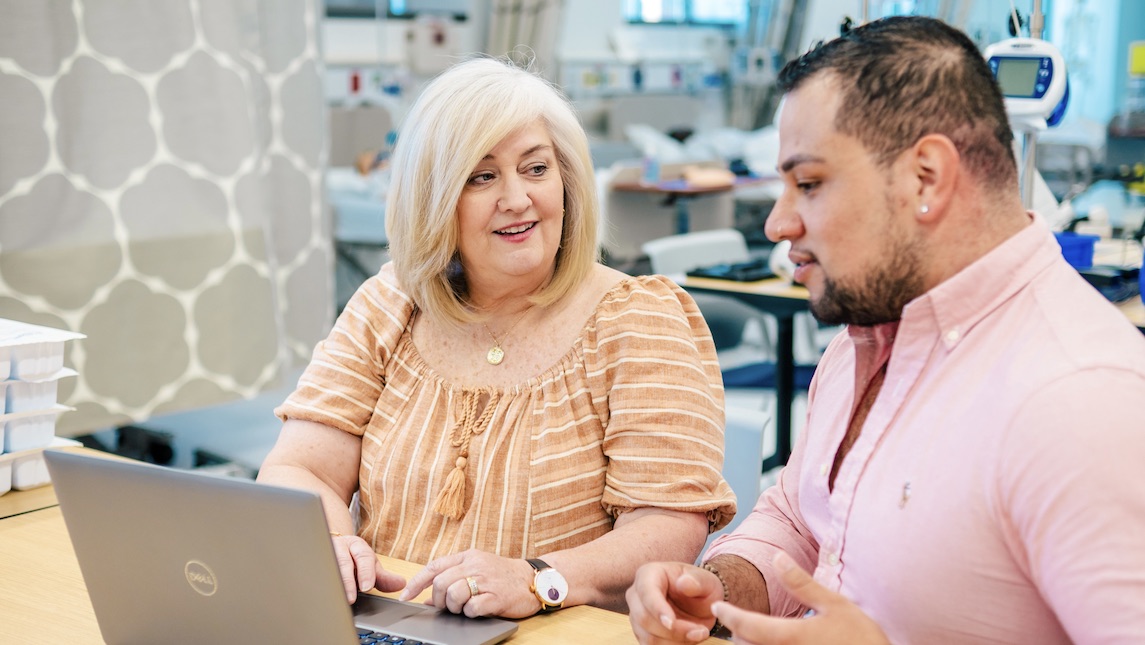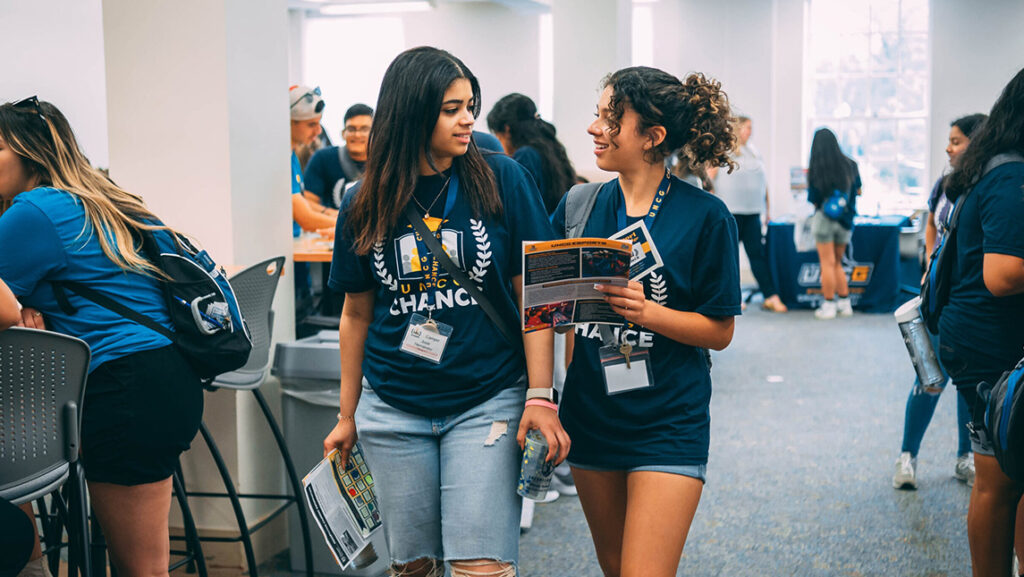RN to BSN Coordinator Tammy Hall knows a thing or two about the students she serves in UNC Greensboro School of Nursing’s popular RN to BSN program—because she was one herself.
“I had been a nurse for 20 years before I decided I wanted to go back and earn a bachelor’s degree. I thought ‘Good grief, what more do you have to teach me that I don’t already know?’” says Hall.
“But when I started doing the work, I realized my nursing practice was changing, and I was seeing my practice differently. I am truly a living testimony to the importance of that bachelor’s degree.”
Now, Hall works to ensure other nursing students feel supported and connected in the online program as they seek to improve opportunities in their nursing career.
Why RN to BSN?
The American Association of Colleges of Nursing (AACN) reports important advantages to having a BSN-prepared workforce, which directly benefits patients.
The AACN states having higher rates of BSN-prepared nurses in hospitals is associated with greater odds of surviving cardiac arrest; lower odds of inpatient mortality and death of dementia patients; and decrease in surgical mortality rate and hospital length of stay. It is also associated with “lower rates of heart failure, decubitus ulcers, failure to rescue, medication errors, and procedural errors.”
Hall also identifies reasons as to how the RN to BSN program benefits UNCG students.
She says some applicants are associate degree nurses (ADNs) who want to pursue being a family nurse practitioner (FNP) or Ph.D. in nursing degree, so they return to school to earn their bachelor of science in nursing (BSN).
Hall explains that some hospitals have magnet designation, which requires 80% of staff to have a BSN. The hospital is allowed to hire ADNs, but the ADN must commit to earning a BSN within three to five years. Although this policy was revoked during the pandemic, Hall believes it will be reinstated in the future, thus driving more ADNs to seek their bachelor’s degree.
Lastly, earning a bachelor’s degree can result in a salary increase and becoming qualified to climb the clinical ladder at a nurse’s agency.
“There are many opportunities for nurses to spread their wings after they earn their degree,” says Hall. “It really helps them become stronger nurses and move their career forward.”
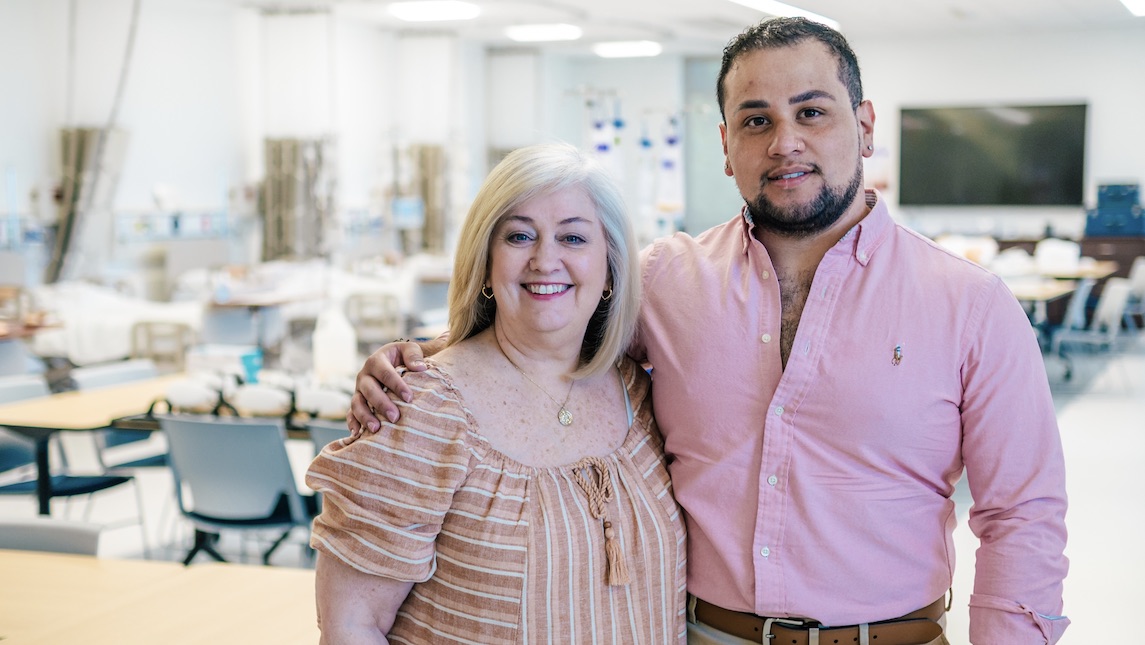
Welcomed with Open Arms
Ernan Yanez-Moreno is a first-generation Latin American student of immigrant parents, who was welcomed to the program “with open arms,” he says.
Referred to the program by a colleague, Yanez-Moreno graduated in May 2024. Currently a Registered Nurse (RN), he is joining the U.S. Navy as a critical care nurse and naval officer following graduation.
“It was UNCG’s commitment to diversity and military students as well as the student body demographics that solidified my decision to come here,” says Yanez-Moreno, who avidly thanks Laurie Kennedy-Malone, Tammy Hall, Deb Stanford, and Jennifer Boggs for their teaching and support.
Yanez-Moreno says UNCG’s program is streamlined and straightforward, and he is confident this degree will open career avenues, especially if he pursues becoming an advanced practice provider, like a certified registered nurse anesthetist (CRNA) or acute care NP.
Finish Line in Sight
Amy Cannady has been contemplating pursuing her BSN since the 1990s. Now, as a RN to BSN student looking to graduate in either Fall 2024 or Spring 2025, she “can see the finish line.”
Cannady claims her experience has been one of ease and great support: “I have been pleasantly surprised at how vested everyone has been since day one.”
When Cannady does graduate from the program, it will carry a certain weight.
“It will be proof that I did not give up after 35 years of chasing this dream,” says Cannady.
Online, Flexible, Fast
The online RN to BSN program utilizes a cohort model, can be completed in one year and offers most classes every semester, empowering students to dictate the order classes are taken.
“Students have the reins on how they complete the program,” says Hall. “I love the flexibility the online program provides students because they are making the decisions.”
Although the program is online, Hall clarifies that students are always welcome on campus. At the beginning of the program, she encourages students to come and talk with her and other faculty.
Students from across North Carolina participate, and they partner with mentors in their local community for the clinical components of the 400 level nursing courses.
Future program developments include the integration of virtual simulation into all 400 level courses and the development of micro credentials or badges, like a rural or community health badge.
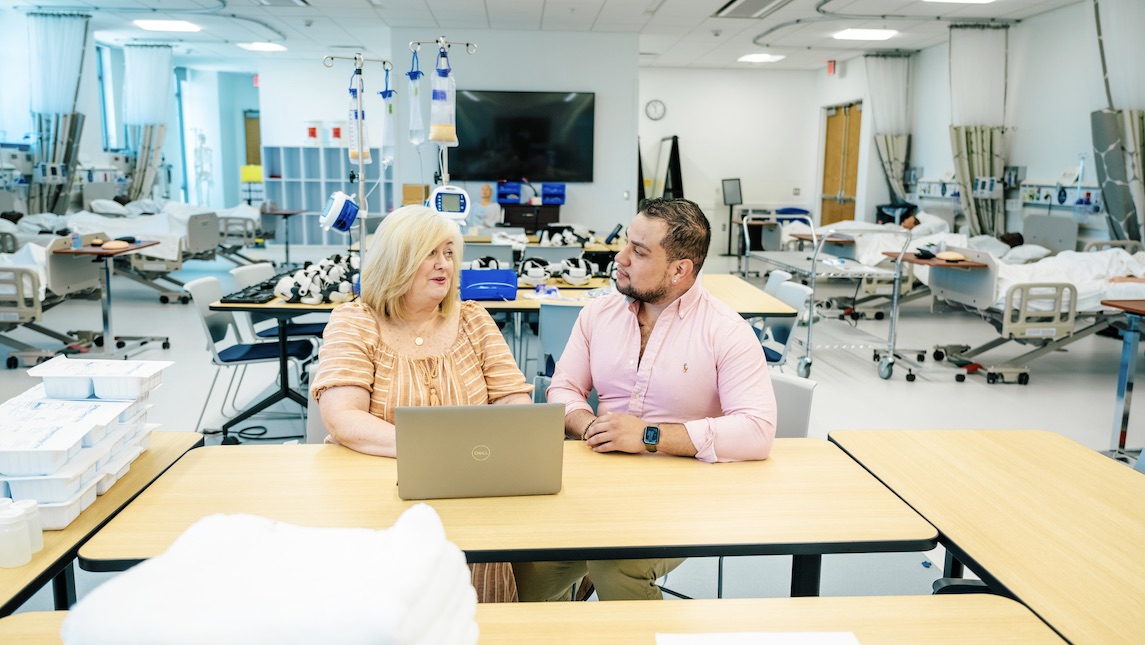
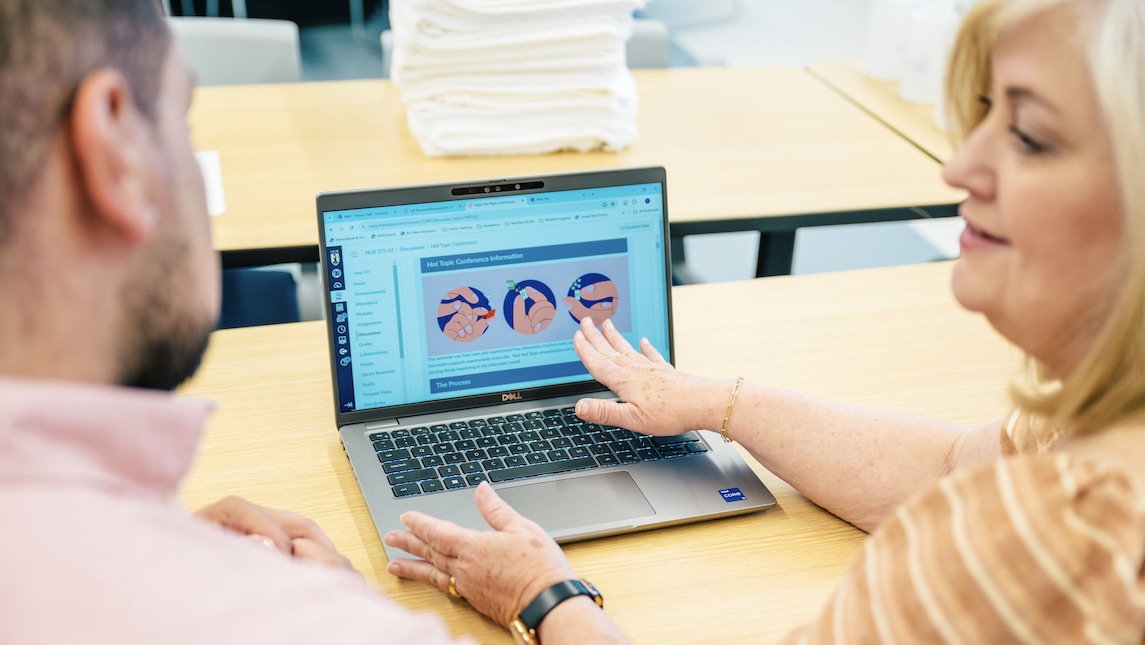
From Online to Front Lines
While the RN to BSN program has existed since the early 2000s, it was originally a hybrid program, in which faculty would drive to community colleges or hospitals for weekly in-person instruction. It was popular but burdened traveling teachers, and the RN to BSN program delivery method was already changing across the country, with many already online.
When the pandemic hit, these in-person classes shut down and moved online at UNCG.
“Students started to realize they really appreciated the online program and online teaching,” says Hall. “More students began to ask specifically for the online class.”
In 2021, the then-new Dean Debra J. Barksdale recognized that the travel model was neither pedagogically warranted nor financially sustainable and challenged the faculty to put the entire program online.
When Hall started working as the RN to BSN coordinator in Summer 2022, she worked to make that happen. The last in-person class was held in Spring 2023.
Invested in Student Success
Hall’s enthusiasm for this program and the students involved is infectious.
“I think UNCG has a unique program; we aren’t just wanting to move these students through, yet we are truly investing in the future of these students,” says Hall.
“And that’s why I am motivated and impassioned to make it better and keep growing the program.”
Story by Amy Burtch, AMBCopy
Photography by Sean Norona, University Communications
